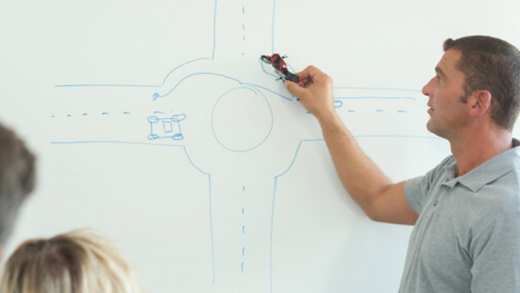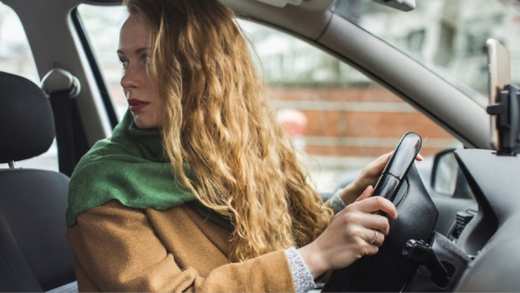Whether you start on your 17th birthday or wait until later in life to learn, driving is a useful skill that gives you plenty of freedom.
To help you from your first lesson to test day we’ve broken down what you need to know about passing your practical driving test.
How many lessons do I need?
You don’t have to complete a set number of hours to take your practical driving test.
You should prioritise feeling confident in your ability to drive safely rather than trying to pass your test quickly.
Can my parents teach me to drive?
Anyone can teach you to drive but they must:
• Be over 21
• Be qualified to drive the vehicle you want to learn in
• Have held a full driving licence for three years
Because learning to drive with a professional instructor can be expensive, some people prefer family or friends to teach them. Unlike learning with a professional instructor, however, you’ll need car insurance.
What insurance do I need to learn how to drive in my own car?
You have two options as a learner:
1. Your friend or family member can add you to their car insurance as a named driver, but this can significantly increase their premium as insurance companies generate a quote based on you sharing the car
2. You can get learner driving insurance which offers flexible cover so you can practice learning in a borrowed car without increasing the premium
There are no rules that state you must have lessons with a qualified instructor. However, it’s generally advised that you have a few. This is because they’re trained to know what the current driving test regulations include and your friends and family may pass on some bad habits they’ve picked up since they passed their test.
How do I book my driving test?
To book your driving test you’ll need to have passed your theory test, and also it’s advised you don’t do it until your driving instructor says you’re ready.
Once you’re confident you’ve practised enough, you can book your practical driving test on the official Government website. You’ll need your:
• UK driving licence number
• Payment card
• Driving instructor’s reference number (to check they’re available)
The practical test for cars costs £62 for weekdays and £75 for evenings (past 4pm) and weekends , however not all test centres offer evening and weekend tests.
You can change the date of your practical test at least three working days before it was originally booked for or you’ll have to pay again.
Also, remember that you’ll need to pay to hire your instructor’s car for the duration of the test. You need to arrange that with your instructor beforehand and it usually costs the same as a lesson.
Practice makes perfect
Aside from learning the rules of the road, it’s a good idea to familiarise yourself with the area around your desired test centre.
If the terrain is particularly hilly, for example, you may want to prioritise practising hill starts. If it’s relatively flat but there are plenty of roundabouts, they should be your focus area.
What happens on the day?
As you would for any test, it’s important to wake up well-rested and as relaxed as possible.
Most driving instructors advise taking an hour lesson before your test to shake off any pre-test nerves.
Avoid drinking any alcohol the day before as, not only could you risk a hangover, but you may be over the legal limit to drive.
You’ll need to bring:
• Your provisional licence
• Theory test pass certificate
• A car (either your instructor's or yours if it meets certain specifications)
Driving test centres run on a tight schedule so you’re asked to arrive five minutes before your test. If you’re late, your test could be cancelled and you’ll lose your payment.
Before your test starts, the examiner will ask you to read the number plate of another car, so bring your glasses with you if you need them to drive. If you’re unable to do this after three attempts, you’ll automatically fail.
Your examiner will then ask you two questions on vehicle safety, known as ‘show me, tell me’. You should have practised these with your instructor.
Then it’s time for the test! The entire thing should take around 40 minutes and you’re tested on your general driving ability, independent driving, how to reverse your vehicle and in some cases, you may be asked to do an emergency stop.
Once you’ve arrived back to the test centre, your examiner will give you your result. If you’ve passed, you’ll get your driving certificate and they’ll ask whether you want your full driving licence automatically sent to you. If you say yes, they’ll take your provisional licence and you’ll receive your pink licence within three weeks.
You can start driving straight away if you have valid car insurance and road tax on the car.
What happens if I fail?
In the UK, you need no more than 15 minor faults and zero major faults to pass your driving test. Plenty of people need a few attempts before they pass.
Your examiner will give you your test results which will detail where you need to improve. The best thing to do book in your next lesson and get straight back behind the wheel. Give your instructor your test results to focus your lessons on fixing any issues you had.
You can book your next test at least 10 working days after your last test.


